Sometimes I daydream about the days when I was a kid and I used to live with my grandparents. No technology, no worries, just me and my grandpa doing something different very single day.
My grandpa knew a lot about living a simple, sustainable life. He raised cows, pigs, chickens, rabbits, and bees, he knew how to grow a garden, cut hay by hand, pick fruits and he knew wo0dworking. There were lots and lots of other things that he ultimately taught me too.
It is those skills that I want to talk with you about today. A lot of them are the exact same ones we’re going to need to live self-sufficiently in a post-collapse world. We just need to pause for a moment from our modern lives and look back at them.
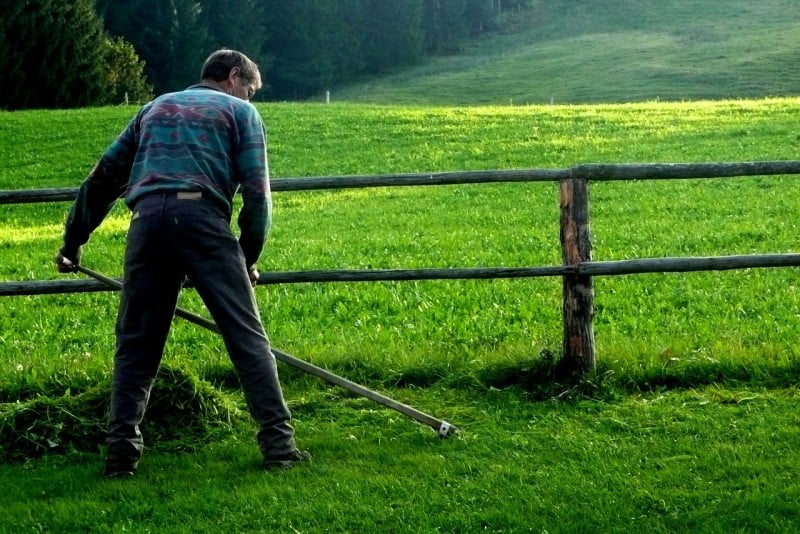
Skill #1: Cutting Grass with a Scythe
This was one of the things I enjoyed most during summer. We had a lot of land and that meant a lot of grass that needed to be cut. We would get up in the morning, pack up our scythes, our tools to sharpen them, and our lunch in a wheelbarrow and we would spend the entire day in the field.
It was hot. Really hot, and we were a few miles away from home, on foot, because we didn’t have any other means of transportation. The two things I enjoyed a lot back then were the really cold, crystal clear water from a nearby spring and the refreshing coolness of the forest that I would run to, to take breaks from mowing.
Skill #2: Foraging
Foraging for wild edibles is a piece of cake compared to maneuvering a scythe or working with hay all day long.
Each year, Mother Nature would deliver an array of goodies and all we had to do was pick them up. Berries, nuts, various fruits, and even mushrooms were carefully picked up by everyone in the village. Me and my grandpa even had contests to see which one would pick up the most.
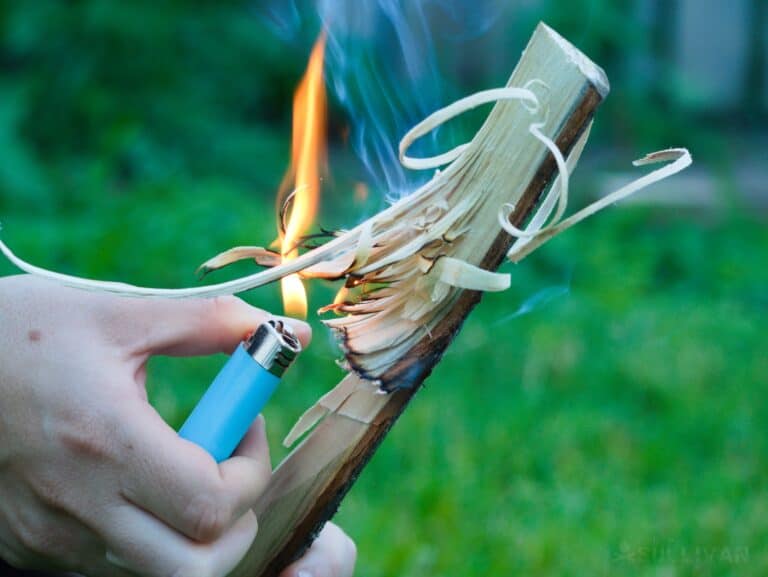
Skill #3: Starting a Fire
Okay, so my grandpa didn’t use flint and steel or a mirror or any other crazy way to start a fire. Still, he taught me to respect it, to never leave it unattended, and of course, how to put it out.
The part that was most fun was cooking on an open fire, those were some of the happiest moments of my childhood.
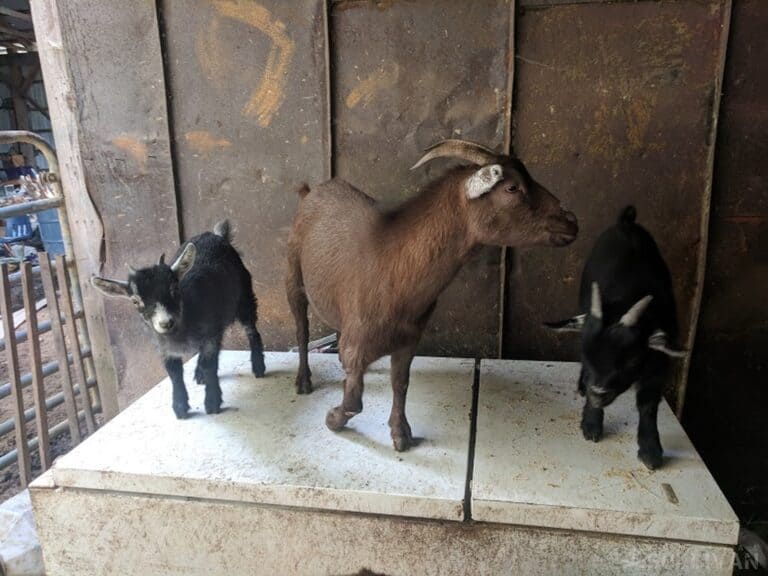
Skill #4: Taking Care of Livestock
We didn’t have that many animals, we just stuck with cows, pigs, and chickens. At one time my grandpa had rabbits and bees, too.
But the joy of feeding them, taking care of them, and leading them taught me a lot about responsibility, particularly when my grandpa left me in charge of the house for an entire day.
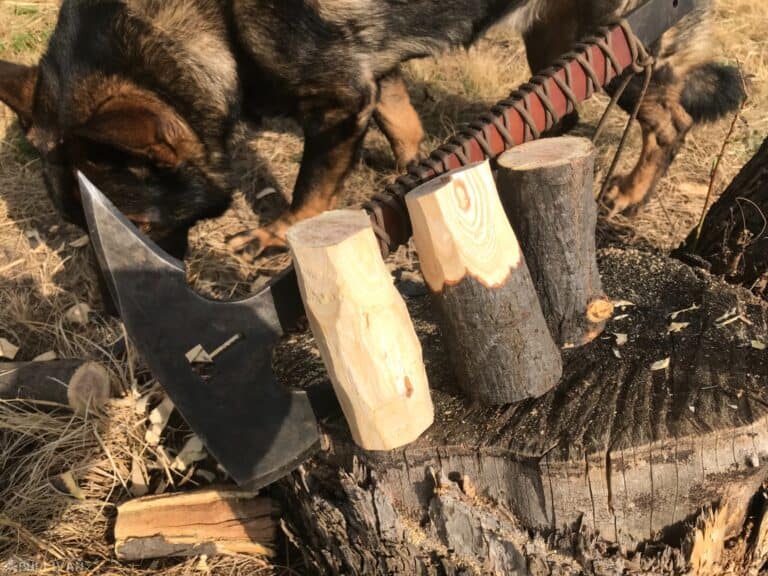
Skill #5: Woodworking
OK, so my grandpa’s tools were not very advanced, but they did the job of keeping our house, our summer kitchen, our outhouse, our barn, and our chicken coops in shape. That’s all we needed. I did smash my fingers a few times with a hammer, but that didn’t really stop me.
I should probably mention chopping wood, too. I first started off with a lightweight axe, and I was only supposed to cut down small branches into even smaller pieces. As I grew older, I moved on to larger pieces of wood.
Skill #6: How to Barter
Our bartering system was far from complicated. We gave our neighbors milk, eggs, nuts, and chicken and they would give us goat milk, honey, veggies, and so on. Oh, and offer each-other pie and delicious homemade cookies for free!
Since we all trusted each other, we didn’t care too much about keeping track of quantities, trading was more of a friendly gesture. However, in a post-SHTF situation, be advised that bartering can be dangerous, as you may be dealing with folks who are more or less desperate to get what you have.
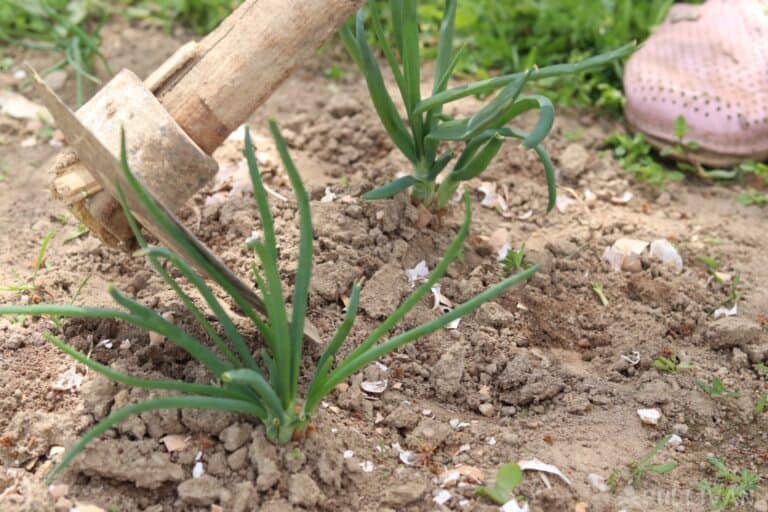
Skill #7: Gardening
In addition to the several pieces of land we had in the outskirts of our village, we also had a sizable garden around our home, where my grandparents taught me how to grow a wide variety of vegetables, including:
- beans and peas
- cabbage
- white potatoes
- tomatoes
- cucumbers
- and lots and lots of corn!
From a young age I was aware of the growing season, I knew how to water the plants, and i was able to recognize the various pests and diseases that would sometimes affect them.
In addition, we had several fruit trees, including walnuts, apple, pear, plum, cherry trees, and other fruit trees.
Final Word
Well, those were it. I didn’t go into much detail about the actual skills because the purpose of this article was different. I wanted to get you thinking about your own grandpa and all the things he taught you that might be useful post-collapse.
If you can write a comment about them, I’m sure he’d feel very proud if he’s still alive, or that you’ll honor his memory if he isn’t.
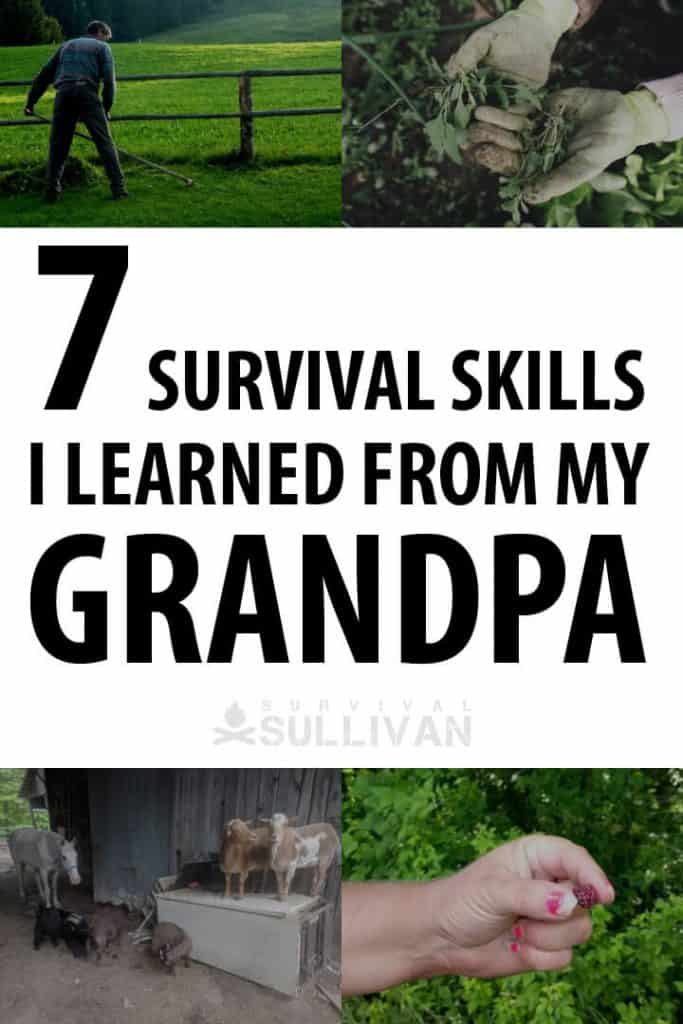
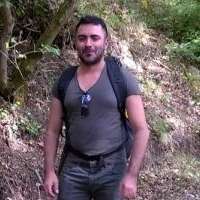
My dad was military. My grandfather was a cop. They served their country well. But I don’t like taking orders. I’m taking matters into my own hands so I’m not just preparing, I’m going to a friggin’ war to provide you the best of the best survival and preparedness content out there.

I never knew my Grandpa but my dad was old country. We lived on a hundred acre farm with
no elec or running water. We raised cows, pigs and chickens, butchered all at one time or another
for food.
I’m from a large family and we all worked the fields of corn, wheat and oats , we girls too, when
night came we helped our mother in the house by lamps. During a spare day we washed our
clothes on a washboard and cooked on a wood stove.
It was a hard life but we didn’t see it so much as we always had fun too.
We did have a team of horses and fought over who got to go to pasture to bring them in for a ride.
I am 77 years old now and I get around really well as we {who are still alive} do too. It just goes to
show that hard work never hurt anyone if you do it right. My oldest sister is 90 and it is nothing to
go by her house and see her on the roof fixing something.
So in summing up, I could do it again if I had too. and would love it. Our dad taught us well !!